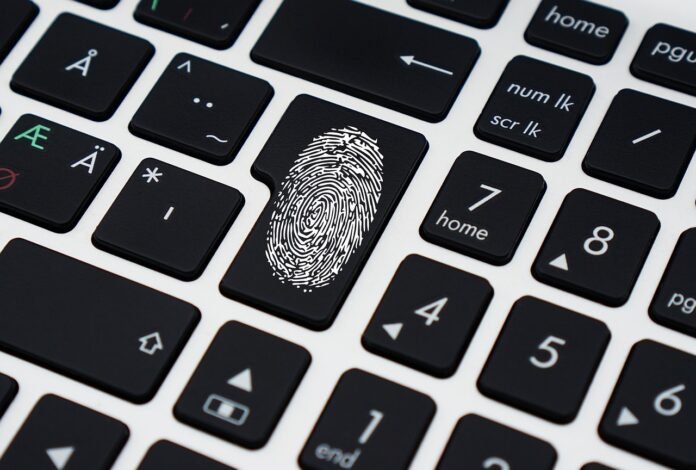Table of Contents
Key Takeaways
- Identity verification is essential for preventing fraud, ensuring regulatory compliance, and protecting sensitive data across industries.
- From finance to healthcare and e-commerce, robust verification systems build trust and streamline operations in an increasingly digital world.
- By enhancing security and improving user experience, identity verification solutions are becoming integral to modern business infrastructure.
Introduction to Identity Verification Solutions
In our digital-centric world, the need for robust best identity verification solutions has surged, underpinning their importance across myriad industries. These solutions serve as a frontline defense, thwarting potential security threats while simultaneously building a fortress of trust and operational efficiency. The surge in identity theft and data breaches has propelled businesses towards embracing sophisticated identity verification systems, not just as a safeguard but as an integral part of their operational ethos.
Identity verification solutions employ a variety of techniques, including biometrics, document verification, and database cross-referencing, to ensure that an individual’s identity is genuine and valid. By leveraging these advanced technologies, industries can protect themselves against unauthorized access and fraud, which is paramount in maintaining a secure and trustworthy operational environment.
Benefits for the Financial Sector
- Mitigating Fraud: The financial sector, a prime target for cybercriminals, relies heavily on identity verification to protect both the institution and its clients. By ensuring that only legitimate transactions occur, financial institutions can safeguard assets and reduce the risk of fraud.
- Compliance with Regulations: Financial entities must adhere to stringent regulations such as Know Your Customer (KYC) and Anti-Money Laundering (AML). Identity verification is not just a tool but a legal necessity that helps banks and financial entities navigate these regulatory waters smoothly.
The financial industry continually adapts its strategies to mitigate risks and fortify security measures, safeguarding its stakeholders while embracing technological advancements to keep fraudsters at bay.
Moreover, identity verification solutions help banks and financial institutions maintain customer satisfaction and loyalty. By ensuring a seamless and secure transaction process, customers can trust their financial service providers, leading to enhanced customer retention and a positive reputation in the market.
Also read: Setting Up Access Points for Seamless Internet Coverage Across Multiple Devices
Enhancing Security in Healthcare
In healthcare, the stakes are high, as the protection of sensitive patient data is of paramount importance. Identity verification solutions in this sector ensure compliance with regulations such as HIPAA, guarding patient privacy with an ironclad grip. These solutions also play a significant role in enhancing patient care by ensuring that the right individuals receive the correct treatments and diagnoses, eliminating any possibility of identity-related errors.
By implementing identity verification, healthcare providers can also streamline patient admissions and reduce the risk of medical identity theft, which can have dire consequences for both patients and healthcare facilities. Additionally, as telemedicine continues to grow, robust identity verification becomes even more critical in maintaining patient confidentiality and trust in virtual environments.
E-commerce and Retail: Building Consumer Trust
The rapid growth of the e-commerce and retail sectors brings with it an increased risk of fraud. Identity verification is pivotal in counteracting fraudulent activities, fostering an environment of trust where consumers feel secure. Customers are more inclined to engage with businesses that demonstrate a commitment to security, which directly translates into increased sales and brand loyalty.
As Retail Dive points out, employing technology-driven identity verification is key to combating fraud in the retail arena. Retailers can harness these technologies to not only protect themselves but to offer a superior shopping experience that customers can rely on.
Furthermore, enhanced identity verification allows e-commerce platforms to streamline checkout processes, reduce cart abandonment rates, and improve overall customer satisfaction. By minimizing the risk of fraud, businesses can focus on delivering quality products and services while cultivating long-term customer relationships.
Streamlining Operations in the Travel Industry
The travel industry, with its myriad of moving parts, benefits tremendously from identity verification. From check-in to boarding, identity checks ensure that the process is smooth, secure, and efficient, enhancing the travel experience for passengers. These measures not only minimize delays but also bolster safety and trust within the industry.
In a world where security concerns are paramount, identity verification helps travel companies meet regulatory standards while providing passengers with a seamless and stress-free journey. Whether it’s through biometric scanning at airports or digital identification for booking and ticketing, these solutions streamline operations and enhance overall satisfaction for travelers.
Furthermore, identity verification plays a key role in international travel, where different countries and airlines have varying security protocols. By standardizing identity checks, the travel industry can simplify processes while ensuring compliance with global regulations.
Improving User Experience in Telecommunications
For telecom companies, identity verification is a cornerstone of improving user experience. By streamlining customer onboarding processes, these businesses can reduce instances of fraudulent account creation and enhance customer satisfaction. Fast, accurate verification leads to a seamless user journey, crucial in a landscape marked by fierce competition.
This technology empowers telecommunications providers to offer secure services without compromising user convenience. Whether it’s activating a new phone line or managing account details, identity verification ensures that customers receive personalized and secure interactions, fostering trust and loyalty.
Additionally, identity verification aids telecom companies in managing customer data responsibly, ensuring compliance with data protection regulations while strengthening relationships with their users through transparent and secure practices.
Educational Institutions: Safeguarding Information
Education institutions shoulder the responsibility of securing both student and staff identities. Identity verification solutions help protect academic data, ensuring its confidentiality and integrity. By employing these solutions, educational institutions can maintain a secure environment, uphold their reputations, and foster trust among students and parents.
In an era where online learning is gaining popularity, identity verification becomes even more critical. It enables secure access to educational materials, prevents unauthorized access to sensitive information, and promotes a safe learning environment for all stakeholders involved.
Moreover, identity verification in educational settings enhances operational efficiency, allowing administration to focus on delivering quality education while minimizing the risk of data breaches and identity fraud.

